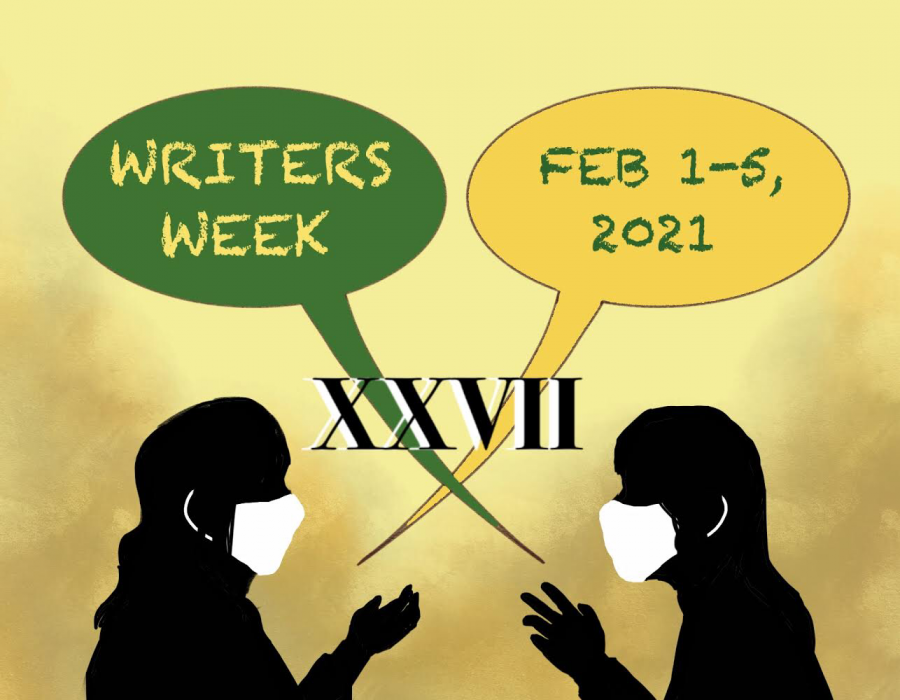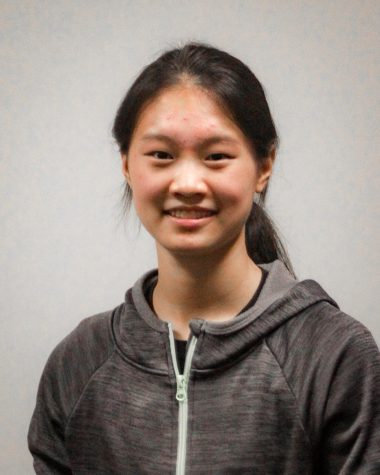Writers Week XXVII takes the stage in virtual format during pandemic
January 27, 2021
Like many other Fremd events, Writers Week has changed formats to accommodate pandemic regulations. The usually packed and noisy auditorium will no longer be a sight to see this year. Due to the ongoing quarantine, Writers Week XXVII will proceed online from Feb. 1-5, with pre-recorded 30-minute episodes of student performances and conversations between guest speakers.
English teacher and Writers Week co-sponsor Gina Enk describes the adapted format for this year’s Writers Week.
“We chose sets of two authors who are friends with each other and fans of one another’s work and asked them to film themselves interviewing one another,” Enk said. “For student periods, it will be somewhat more traditional, in that students will still have five minutes for their presentations.”
Making such an adjustment and editing the numerous videos requires a greater amount of support from the Fremd English department, which significantly lessens the scramble to pull all aspects of Writers Week together. Meanwhile, the ever-changing situation has called for a lot of flexibility in the planning schedule.
Writers Week co-sponsor and English teacher Russell Anderson reflects back upon the past and ongoing planning process.
“Ever since Feb. 7, 2020, we’ve started thinking about the next Writers Week,” Anderson said. “We’ve had a lot of ideas rolling around, but we’ve almost had to push it to the last minute to see what we have to work with, so the timeline is much shorter than what we’re used to working with.”
Given the time crunch, teacher performances will unfortunately not be featured in this year’s Writers Week. Students often saw Writers Week performances with their classes, but students are getting less class time due to the current school format. Meanwhile, Anderson and Enk wanted teachers to have as much flexibility as possible to show as many episodes of Writers Week as they can.
Enk explains how she and Anderson came to the decision to keep to student episodes and guest speaker conversations.
“Even as it is, we already have more episodes planned than teachers will be able to show,” Enk said. “Students can obviously watch them on their own too, but we wanted to give a little more balance for teachers who wanted to create that Writers Week environment for their students.”
In spite of a few losses, an advantage of this year’s format is the greater availability of guest speakers. During a traditional year, time and geography can be hindrances to professional guests attending. For the virtual format, guests – most of them returning speakers of Writers Week – are filming from their houses and offices with less time restrictions.
Seeing more writers “in conversation” with one another is yet another perk that Anderson highlights as a rare occurrence if not for the current situation.
“We’ve had conversations before, but only once or twice,” Anderson said. “The conversation between Pulitzer Prize winner Tyehimba Jess and Pulitzer Prize finalist Patricia Smith is something we’d never see if it were not for this very unique situation, so that should be pretty interesting.”
Since Writers Week is a very community-based event, continuing the immediate feedback and support usually seen in the auditorium after student performances is crucial to keeping the Writers Week integrity alive. Especially due to the isolation, Anderson encourages students to keep reaching out to friends and classmates who choose to share their stories via Writers Week.
“I know how important that is to student presenters to feel validated or that the story was heard,” Anderson said. “Even though students listen at home or in the classroom, students should reach out in any way they can; I think that’s going to be an important part of building this year’s Writers Week.”




